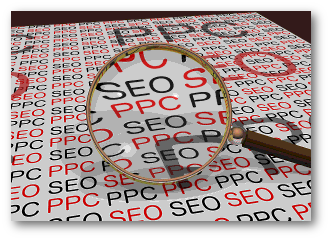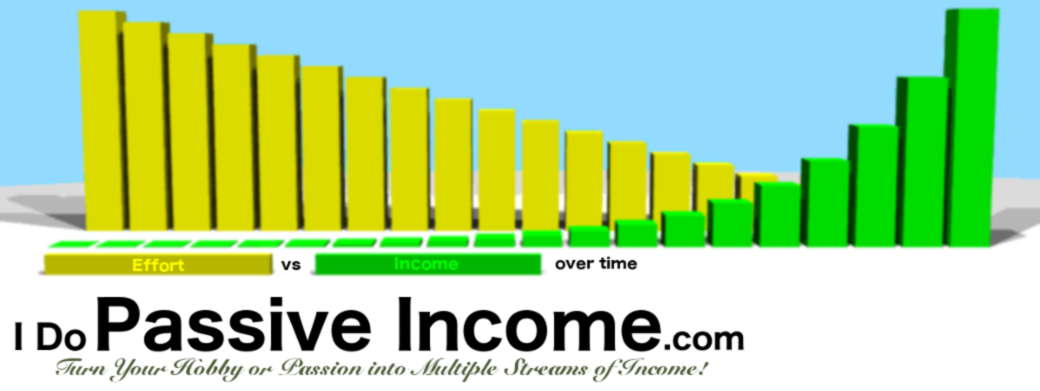 More three letter acronyms! Life is full of them. So, just what the heck are these two? So first off…
More three letter acronyms! Life is full of them. So, just what the heck are these two? So first off…
What is Search Engine Optimization? (SEO)
SEO is the art of tuning up, or optimizing, the way your web site or page will appear in search results when people enter certain keywords.
It is how search engines sort through the content of the all web pages that get indexed to find the best matches for search keywords that are entered in the search field. Pages that are considered most relevant to the search will be ranked higher on the search results pages. The most relevant stuff will make it to the coveted top of page one and will be the first results the user will see. It is also the one that will get visitor traffic.
What is “relevant”? It is defined as “Important to the matter at hand.”. The “matter at hand” being the search term that a person enters on the search bar. This is what search engines are trying to deliver to the end user when they perform a search. It is our duty in return to make the content we write important and valuable to the type of audience we wish to attract.
Now we need to attract the right audience. We need to get an idea of what they are searching for.
There are keyword research tools that can be used to determine what keywords your desired audience is entering most often. Once determined, this keyword phrase is typically placed in a couple of places. Usually the post title and maybe somewhere in the first paragraph. It can also be placed in your search title/description meta tags, too.
The benefits of an SEO strategy are that it is free. It does not cost a dime – you just give it time! You can build a base of followers from out of the blue searches.
Downsides are that it is of a “Play and pray” nature. You are at the whim of what the search algorithms consider to be “relevant”. You do have to write up a lot of content and maintain activity/engagement at your website for it to stay fresh and rank favorably.
No cheating! We also have to be careful not to abuse keywords as this can result in being “penalized” and ranking lower. Modern search engines have become very vigilant against keyword spamming (aka “Spamdexing”) and other “black hat” SEO tricks spammers may use to game the system. Safest bet – don’t obsess with SEO, focus on your content. Put yourself in the shoes of your visitors. What do they want to read and see?
Another disadvantage is that popular keywords are highly competitive. There’s no chance of the “little guy” ranking anywhere with these. You’re a little fish in an ocean of sharks!
To make to the best of SEO, it is a good idea to target “low competition” keywords. Keywords and search phrases that are more specific and targeted. Also known as “long tail keywords”. By devoting entire posts to targeting very specific keywords, you then become a big fish in a small pond!
The key to building high traffic to your website, is write many posts, each with high quality content, each targeting a specific low competition search term. Instead if trying to get 1000 visitors to one page targeting high competition keywords and having no chance of ranking, you’re creating several posts that may each rank much better, but each will attract maybe say for example 10 visits. However 100 posts, each attracting 10 visits gets you 1000 visitors using low competition high ranking keywords.
What is Pay Per Click? (PPC)
PPC is the art of choosing groups of keywords and bidding, auction style, for placement in search result related ads with other advertisers targeting same or similar keywords. The higher the bid, and the quality and relevance of your landing page, the higher your ad places in the list.
In a PPC strategy, you don’t really need to worry as much about being SEO friendly, but you do need to make your content super relevant to the keywords you’ve chosen for your ad campaign. This relevance is also a factor that will determine where your ad will place. In fact, very well written ads can place higher than ads with higher bid amounts, but not so well written.
To participate in PPC, especially Google AdWords, you need make sure your page content is relevant and useful to what the user searched for. Users don’t want a “bridge page” full of banners and affiliate links. This can get your PPC account closed down! Do your due diligence first. Know what you’re getting into.
A big advantage of PPC is that once you’ve got a good post or page that converts, you can “scale up” by simply buying more clicks and bidding higher. You also do not have to wait and see as you do in SEO. As soon as you kick off your ad, you’re in the search results instantly based on your bid amount!
Like with SEO, the rules around PPC are constantly changing and evolving. One thing has remained constant over the years – relevance is what will convert best in a PPC campaign. In other words, make visitors will feel like you’ve met or exceeded their expectations. A good high relevance campaign can last for years!

Additionally, PPC can become a source of passive income! A working PPC campaign can keep going for months, a year or more, with minimal attention, other than watching the cost and stats.
Disadvantages of PPC are that it is a “Pay to Play” system and it can become very costly if you’re not careful. Before you start, you need to make sure what you place into a PPC campaign is known to convert. When starting any new campaign, it is a good idea to start with small bids (something like 25 cents) and see what sticks and what doesn’t. From there, you can decide to scale up working campaigns and discontinue the duds.
SEO can also be a good way to find candidates for PPC. This can be a post or page that has been converting well using SEO traffic. This will help minimize funds lost on test campaigns that don’t work out.
PPC can be awesome, just don’t let it turn into gambling!
You may even want to develop special landing pages devoted only to PPC campaigns. It is a good idea that these are hidden from search engine indexing. This will help shield the rest of your site from any impact the PPC stuff might have since you have the liberty to go against SEO best practices here, and focus on optimizing for relevance to your ad.
SEO is play and pray. PPC is pay to play. They both work great together!
How A Keyword Research Tool Can Help You
More on that keyword research thingy. Both PPC and SEO rely on carefully chosen keyword phrases, a good keyword research tool is vital! You want to find those low competition nuggets. In SEO, low competition means a better chance of ranking on that first page of search results. In PPC, low competition translates to getting your ad placed higher for a much lower bid amount. Fewer ads to compete with.
I have a sweet spot for the Jaaxy keyword research tool. I love entering a search term and getting back a bunch of suggested keyword phrases with competition info like the number of Quoted Search Results (QSR), and the estimate of traffic that term may generate to your site if you were to land on page one of the search results.
Oh, And just where am I learning all of this stuff?
But, the world of SEO and PPC is a confusing jumble of (mis)information and “opinions”. How in thundering tarnation do we sort out what will work for us?
There is nothing more helpful than taking a complete training course on online marketing. Especially one that has been around for more than a decade and has produced many success stories.
If proper training is something you are searching for, I invite you to come check out Wealthy Affiliate University! It’s the best thing I’ve found out there.
Start Here: Wealthy Affiliate University
At the very least, I do hope my little post here helps clear the murky waters around SEO and PPC. Your questions and comments are welcome. Please do leave them below.
Cheers and best,



Awesome advice Oren! It sounds like PPC can be a bit more stressful but yield faster than SEO as it is a bit of a gamble. I am wondering how much does a typical PPC campaign cost? And how do you calculate the price of your product vs the amount of traffic and conversions? It seems tricky to me. I guess I have to take the course. Will that clarify or simplify it any more?
Hi Gord, thank you for your response! Since you can bid auction style for ad placement, and can set maximum daily spend limits, you’re pretty much deciding how much you want to spend.
Set up conversion tracking and start with a very low bid and several small ad runs with different keywords lets you see what’s working and what’s not. You can then take what works and scale those up. That helps make it more of a calculated return on investment than a gamble on an unknown.
Best to you for 2018!
Hello OrenL,
Thanks for the explanation of search engine optimization and pay per click! It was very confusing in the beginning because I learned about the power of search engines like Google, but didn’t know how to make my website rank high on the search results.
In terms of low competition keywords, they usually don’t have good monthly searches, so even if I rank high, would it still provide minimum organic searches?
Thanks,
ERIC
Hi Eric, Thank you for your comment and question! I’m not sure what you mean by “monthly searches”. In general, achieving decent ranking in organic searches involves doing some keyword research and publishing fresh content regularly.
Tools like Google Analytics or Google and Bing Webmaster Tools are very useful for monitoring search traffic trends. Tools like Jaaxy can very helpful for finding low competition keywords that may help your content of rank high in organic searches.
Wishing you the best for 2018 and beyond!
– Oren
I’ve learnt my ropes on SEO but pretty clueless on PPC. Reading your article does give some clarity into it. Do correct me if I’m wrong, but if the keyword that we’re trying to bid for is competitive, than the cost per click will be higher? Would you recommend a beginner testing against competitive keywords or playing safe on lower bid keywords?
Hi Kenny, generally, yes – cost per click (CPC) for high competition keywords will be more expensive as you will need to set your bid higher for your ad to be seen.
For beginners, I would suggest starting with low competition keywords and seeing what gets clicks and ultimately conversions.
Cheers!
The power of writing a lot of quality content is amazing. It’s like Google is working for you. It does take effort, but never underestimate the power of content to bring visitors to your site.
I’m just beginning to get into PPC. I’ve waited until my site was earning enough to cover the losses as I learned. I still don’t feel confident with it, but will keep trying.
Hi Gary, I was just reading some interesting stats on how posting frequently and regularly can exponentially increase your traffic. There is a great article on HubSpot.
With a new site you just have to put in a lot of work at first before at starts to “snowball”. Too many folks give up too soon 🙁
Yes, it’s a good idea to not jump right into PPC until you have an idea of what is working. Otherwise it’s gambling – you can lose a lot of money quickly! If your website is already earning, that is a good sign for sure!
Thanks for commenting and keep up the great progress!
– Oren
Hi Owen,
I have always been scared of PPC. I have always wanted to give it a try but am always scared of losing money. I am a complete dummy to PPC. Do you have an article that illustrates the step by step guide in dealing with PPC?
Is it the same concept as facebook ads? I have tried facebook ads in the past, and lost hundreds of dollars, with 0 conversions. That being said, I just always resort to clean white hat SEO instead.
Thanks for any advice.
Regards,
Pitin
Hi Pitin, thanks for your comment!
Before venturing into PPC, I would first get some conversions via free approaches like SEO, social shares, etc. Once you have a page that you know converts, then you can try PPC or Facebook Ads on a small scale and see how it does. Bing Ads would be an easier PPC to start with before venturing into Google Ads.
Here is a great introduction to setting up PPC on Bing. This is part of a whole series of training courses Wealthy Affiliate offers.
I will confess that I am still learning a lot about PPC too! There are many details – too much for one post. I’ll be posting articles as my own exploration continues.
The important thing is to study up on how PPC works, try a small campaign when you have a page that you know converts via the free methods. If it is profitable, scale up!
I hope this helps you!
Really well written and incredibly informative. I like your use of different fonts to highlight specific phrases and words.
Page has lots of colour and is incredibly professional to look at. The format is also very reader friendly.
I love the signature at the bottom – going to adopt that one myself 🙂
You really come across as an authority on this and I am sure many people will gravitate towards you on those grounds.
Really well done!
Hi Sarah, thank you very kindly for the compliment! I like to put a little style into my posts to emphasize important points. I drew the signature on an iPad using Evernote, and uploaded the image to where I could use in my blog. I’m glad you found it informative and helpful. If I save someone from a few “hard knocks” out there, I’ve served my purpose!
Cheers and best, Oren!
Hi Oren would you be able to give me some advice?
I’ve been working on a website for a few weeks now and I’m not sure which way I should go – SEO or PPC. Seeing as you know your stuff, what do you think I should do?
I’ve yet to convert so I’m just not sure if spending (or possibly wasting) money will be worth it just to see if a page works. But then I feel like at least trying PPC would speed up the process and lets me know much quicker what works and what doesn’t.
I’m really not sure what to do so your help would very much apprectiated!
Cheers,
Lyle
Hi Lyle, If you have yet to convert, I would stick with the no-cost approaches like SEO and social sharing until you see a few conversions. When you start getting an idea what pages are converting, then you can try PPC with those pages that have had conversions.
It is also best if you have an email sign up option in place to capture subscribers. In PPC you’re paying money for those visitors, so you want to keep them around and update them on future posts!
Otherwise, PPC can become an expensive guessing game if you don’t know how a page is performing.
If you’re more adventurous, and have a good gut feeling about a certain page, you could try a limited PPC campaign at a low bid – less than 50 cents – and see what you get. BingAds on Bing/Yahoo would be an easier one to start with.
In my opinion, it is best to get some conversion and data using the free approaches before venturing into PPC.
I hope this helps! Cheers,
– Oren
I’ve tried PPC a few times with Google Adwords and with Bing. Both times I lost my shirt.
I discovered your website when I searched for advice on how to actually make money with PPC. Thanks for clarifying some issues for me about SEO. And thanks too for recommending the Jaaxy keyword tool.
I accepted your offer to try it for free. I love how easy it is to use. It marks the profitable keywords with a green light. It doesn’t get any easier than that.
Hi Gary, I do love Jaaxy’s “traffic light” visuals on potentially good picks.
Yes, PPC is something you have to be careful with. It can be very lucrative if you get it working right. Start small – small failures are much easier to deal with and learn from. The small successes are the ones you can scale up.
Thanks for your comment!
Cheers, Oren